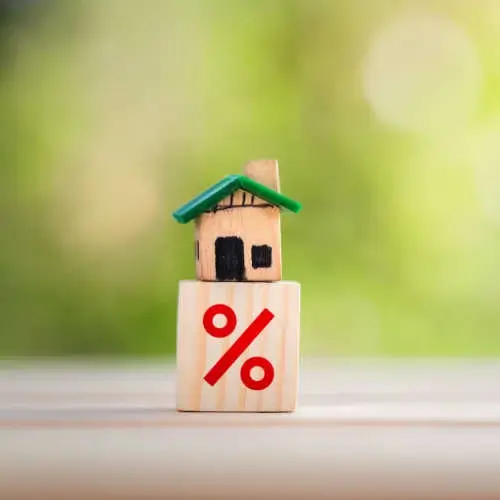
It's no secret that mortgage interest rates have risen this year. Rates have risen almost four percentage points in less than a year. That kind of rate increase can be stressful for home buyers? But what about home sellers? How do increasing rates affect would-be sellers?
Economists have found that fluctuating mortgage rates can create a phenomenon known as the “rate lock-in effect.” This has nothing to do with when homebuyers lock in their interest rate at a certain point during the mortgage process. Instead it means that homeowners will get paralyzed into staying in their homes to keep their current rate when it is lower than the market rate. This sometimes happens even when homeowners really want to relocate, downsize, or move up to a larger home.
For example, an economics professor from Berkeley argued in The Review of Economics and Statistics that a 35-year-old homeowner who got a fixed-rate mortgage at 10% would have a 50% probability of moving after eight years if interest rates stayed at 10% but only a 40% chance if rates rose to 12%, and just a 30% probability of moving if rates jumped to 14%.
This lock-in effect can have serious implications on the housing market. When homeowners are unwilling to move even though they want to, it creates a shortage of inventory, which can in turn lead to rising house prices as more buyers fight for fewer homes. It also means homeowners choose to fix up or add on to their existing homes more often than sell and trade up. Experts say that in these conditions, the only people moving are those who have to for things like relocating for work, getting moved by the military, or dramatically outgrowing their homes.
If you find yourself wanting to move but feel that exchanging your current low interest rate wouldn’t make financial sense, there are a couple of strategies you may want to consider:
Strategy #1 - Buy Down your Rate
If you plan to stay in your next home for a long time, it might be wise "Buy Down" your interest rate by paying points. A discount point is equal to 1% of the mortgage total. The more points you pay, the lower your interest rate will be. You pay more up front, but in the long run you benefit from a lower interest rate and lower mortgage payment.
Strategy #2 - Use an Adjustable-Rate Mortgage temporarily and then Refinance when Rates come back down
Adjustable-rate mortgages offer lower introductory interest rates that are fixed for the first 5, 7 or 10 years of your mortgage and then adjust periodically after the initial 5, 7 or 10-year introductory period expires. With an adjustable-rate mortgage you can benefit from a lower mortgage payment during the first few years while you wait for rates to come back down. When rates come back down, you can refinance into a fixed rate mortgage at the lower rates. Or if you only plan to stay in your home for a few years, an adjustable-rate mortgage could give you a lower mortgage payment than a fixed rate mortgage for the next few years until you sell your home.
Either way, don’t let your current low rate be the only thing holding you back from selling and don't let higher rates keep you from buying. Give us a call today and we can give you a free no-obligation mortgage quote so that you can see what your mortgage payment would be in a new home.
